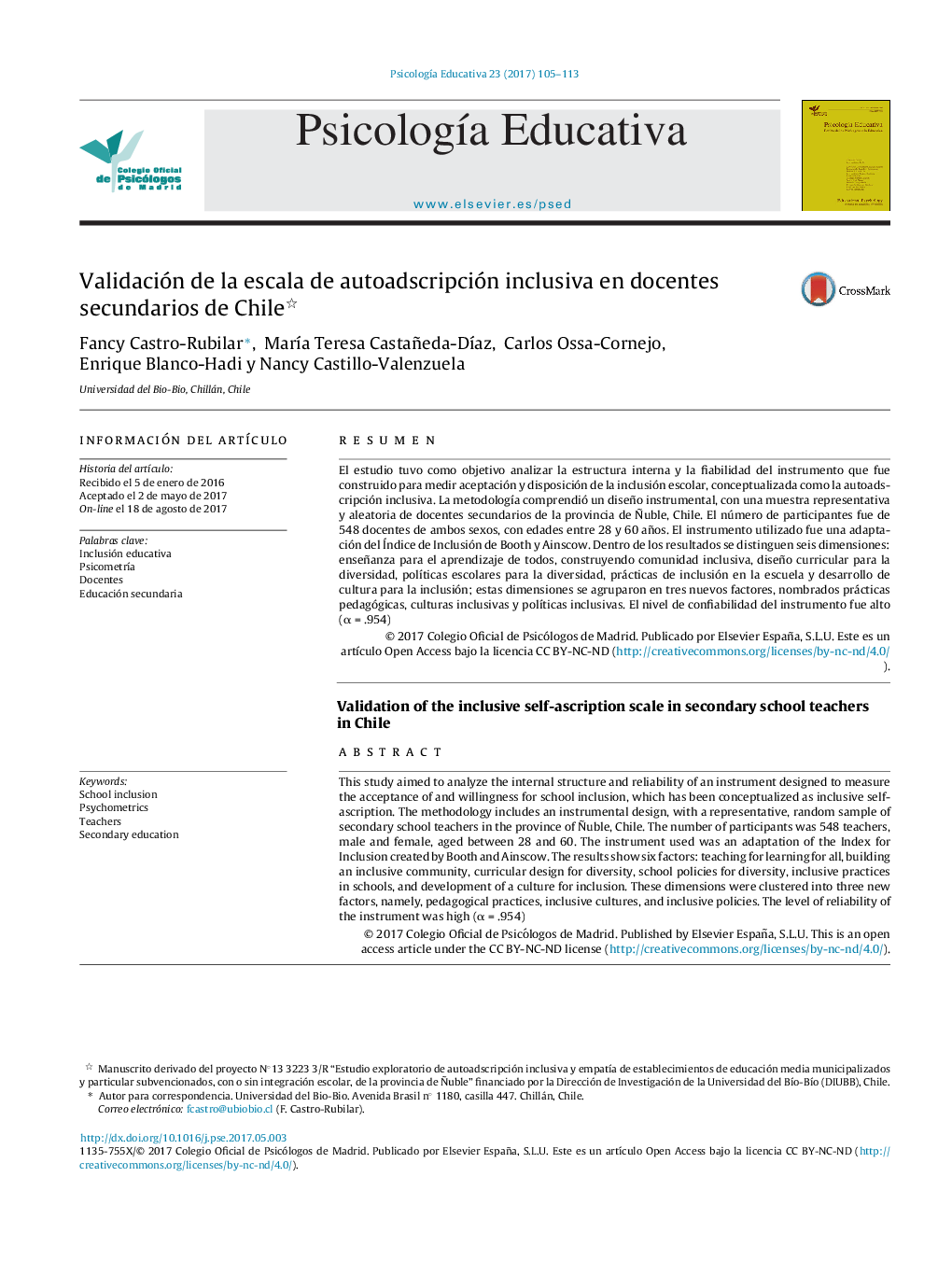| Article ID | Journal | Published Year | Pages | File Type |
|---|---|---|---|---|
| 7276014 | Psicología Educativa | 2017 | 9 Pages |
Abstract
This study aimed to analyze the internal structure and reliability of an instrument designed to measure the acceptance of and willingness for school inclusion, which has been conceptualized as inclusive self-ascription. The methodology includes an instrumental design, with a representative, random sample of secondary school teachers in the province of Ãuble, Chile. The number of participants was 548 teachers, male and female, aged between 28 and 60. The instrument used was an adaptation of the Index for Inclusion created by Booth and Ainscow. The results show six factors: teaching for learning for all, building an inclusive community, curricular design for diversity, school policies for diversity, inclusive practices in schools, and development of a culture for inclusion. These dimensions were clustered into three new factors, namely, pedagogical practices, inclusive cultures, and inclusive policies. The level of reliability of the instrument was high (α = .954)
Keywords
Related Topics
Social Sciences and Humanities
Psychology
Developmental and Educational Psychology
Authors
Fancy Castro-Rubilar, MarÃa Teresa Castañeda-DÃaz, Carlos Ossa-Cornejo, Enrique Blanco-Hadi, Nancy Castillo-Valenzuela,
